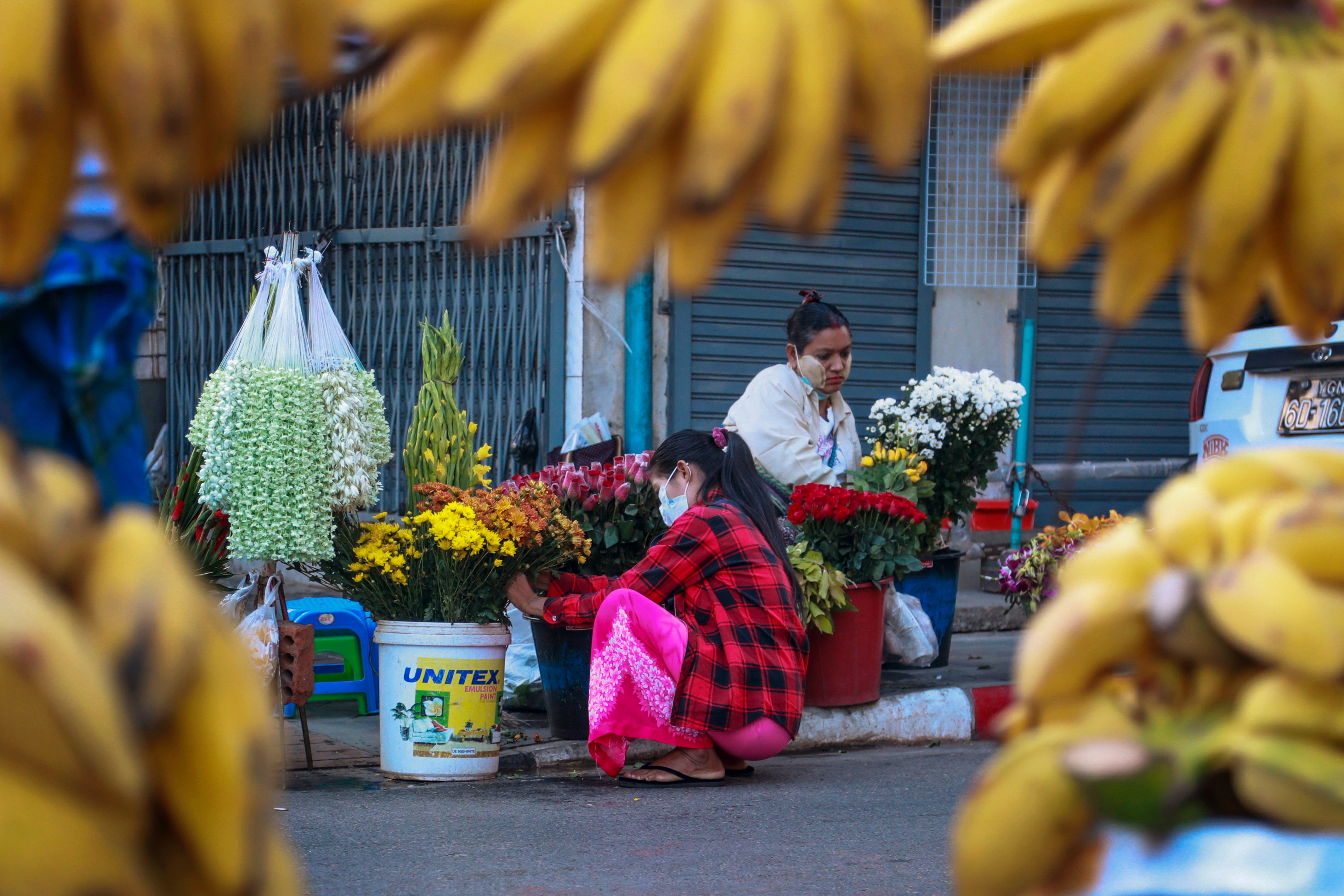Vise tightening on Myanmar's economy 3 years after military takeover triggered civil strife
Myanmar was a rising star in Southeast Asia before its military seized power three years ago in a takeover that has brought civil strife and a tightening vise of international sanctions, undoing years of progress and leaving the economy 10% smaller than it was in 2019

Myanmar was a rising star in Southeast Asia before its military seized power three years ago in a takeover that has brought civil strife and a tightening vise of international sanctions, undoing years of progress and leaving the economy 10% smaller than it was in 2019.
Economists say the generals who toppled Aung San Suu Kyi’s elected government on Feb. 1, 2021, increasingly rely on illicit revenues from gem mining and logging to fund their battles against a broad popular resistance movement.
Weak law enforcement, corruption and poverty resulting from a dearth of economic opportunity, meanwhile, are fueling a surge in drug production and trafficking, online scam rings and other criminal activities.
Export manufacturing and other mainstream business activities in Myanmar have suffered since the military takeover, wiping out jobs that millions relied on to get by. The economy is forecast to grow at a meager 1% pace this year and about half the population is estimated to be living in poverty. More than 2.6 million people have been displaced by civil war.
From the early 1960s, Myanmar muddled through decades of mismanagement and isolation under military administrations until the early 2010s, when reforms loosened the military's grip on power, opening the economy to foreign investment.
But that era of fast growth and nascent industrialization was derailed by the military's takeover, which sparked peaceful protests that turned into armed resistance against the army's use of deadly force to suppress them.
Fighting with pro-democracy guerrillas and ethnic minority armed groups has escalated in recent months, raising pressure on the military, which has suffered some key defeats.
Recent visitors to Yangon, Myanmar's biggest city, say conditions there appear calm. However, United Nations officials estimate that nearly 18 million of the country's nearly 57 million people are in need of humanitarian aid.
Many lack secure access to food. Myanmar's kyat has depreciated sharply against the U.S. dollar and other currencies, raising prices for many necessities, while restrictions on trade and movement and active fighting have disrupted farming.
“The junta’s inept policies are steering the Myanmar economy towards a trajectory reminiscent of North Korea, where there is a struggle to provide basic necessities for the population,” Miemie Winn Byrd, a professor at the Daniel K. Inouye Asia-Pacific Center for Security Studies, wrote in a recent report.
The Myanmar military administration reported $602 million in foreign direct investment last year, mostly in the energy sector, with only $112 million invested in manufacturing. That compares with a peak of $4.8 billion in 2017 and $1.2 billion in 2022.
In addition to the risk of unrest, corruption and disruptive swings in policies such as an order for all foreign exchange to be converted into kyats, sanctions on key areas of the economy have also stifled investment.
The Office of the U.S. Trade Representative issued a fresh business advisory on Jan. 26 highlighting what it said were “sectors and activities of concern” to inform companies and people about risks of doing business in Myanmar.
It cited trade in rare earths, which are often used in high-tech products such as electric vehicles, timber, gold and other metals, aviation and financial services.
Such areas often operate as military or state-controlled monopolies and are linked with corruption and human rights and labor rights abuses that might expose companies to violations of U.S. sanctions or anti-money laundering laws, it said.
To a certain extent, black market trading and other illicit activities enable people to cope with increasing poverty and precarious living conditions.
But transnational criminal syndicates have been expanding into Myanmar's border regions, where online scam rings, casinos and drug production and trafficking are generating revenues for both military and anti-regime groups.
“There's no economic opportunity in the country because the economy's collapsed,” Jeremy Douglas, the regional representative of the U.N. Office on Drugs and Crime for Southeast Asia and the Pacific, said in a recent briefing in Bangkok.
“This is a political problem for this region and the world, because this system is there, generating money in its own right and generating money for the syndicates,” he said.
Subscribe to Independent Premium to bookmark this article
Want to bookmark your favourite articles and stories to read or reference later? Start your Independent Premium subscription today.
